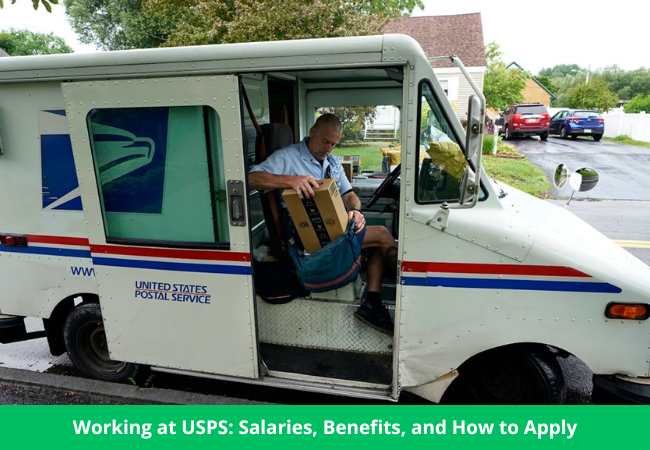The COVID-19 pandemic has significantly impacted the US job market, accelerating several key trends that will continue to shape the landscape through 2025. According to a survey by Gartner Inc., a large majority (82%) of executives plan to allow employees to work remotely at least part-time, with nearly half (47%) saying they will permit full-time remote work. This shift to remote and hybrid work models presents both challenges and opportunities for companies and workers. Additionally, the pandemic has heightened the focus on worker health, safety, and well-being, with 83% of business leaders planning to hire more people for health and safety roles in the next two years. Companies are also placing a renewed emphasis on diversity, equity, and inclusion in the wake of social unrest, aiming to diversify their leadership ranks. Emerging technologies like artificial intelligence, cloud computing, and blockchain are also driving demand for specialized skills. By understanding these key trends, job seekers can better position themselves to capitalize on the evolving US job market.
Key Takeaways
- The US job market is undergoing significant shifts, with remote and hybrid work models becoming increasingly prevalent.
- Demand for specialized skills in emerging technologies, health and safety, and diversity initiatives is on the rise.
- Flexible work arrangements and comprehensive benefits are critical for attracting and retaining talent in the current labor market.
- Automation and artificial intelligence are expected to displace millions of jobs by 2025, while creating new opportunities in the workforce.
- Investing in learning and development, as well as building professional connections, can enhance job seekers’ competitiveness in the evolving job market.
Remote Work Becomes the New Normal
The COVID-19 pandemic has catalyzed a significant shift in the way we work, with remote work becoming the new normal for many companies. According to recent data, over 80% of executives now plan to allow employees to work remotely at least part-time, and nearly half will permit full-time remote work.
Transition to Remote and Hybrid Work Models
This transition to remote and hybrid work models presents both challenges and opportunities. On one hand, remote work can offer employees greater flexibility and a better work-life balance. However, companies are also concerned about maintaining corporate culture and innovation if employees are not physically co-located. Surveys have shown that 65% of employers have found it challenging to maintain morale, and over a third are facing difficulties with company culture and worker productivity.
Challenges and Opportunities of Remote Work
The shift to remote work has forced companies to invest in new technologies and strategies to support virtual collaboration and employee engagement. This, in turn, has led to increased productivity and efficiency in the long run. However, some employees have struggled to achieve a healthy work-life balance while working from home. Despite these challenges, the remote work model also presents opportunities, such as allowing companies to draw from a larger, more diverse pool of talent, as employees can now live anywhere.
As the future of work continues to evolve, companies and employees must find ways to adapt and thrive in this new paradigm. By embracing the benefits of remote work while addressing the challenges, organizations can create a more flexible, productive, and engaged workforce.
US Job Market: Trends for 2025 and How to Take Advantage of Opportunities

As the US job market continues to evolve, job seekers need to stay informed about the emerging trends and in-demand skills to position themselves for success. According to industry experts, several key trends are shaping the job market leading up to 2025.
One of the most significant shifts is the growing demand for skills in artificial intelligence, machine learning, cloud computing, blockchain, cybersecurity, data analysis, and digital marketing. These cutting-edge technologies are transforming various industries, creating a need for professionals who can leverage these capabilities. Alongside technical skills, adaptability, communication, and problem-solving are also highly valued by employers.
The healthcare sector, in particular, is experiencing a shortage of workers, presenting opportunities for those with clinical healthcare skills. By proactively developing the necessary skills through career development, workforce preparation, and lifelong learning, job seekers can position themselves to take advantage of the emerging job market trends.
Additionally, the rise of the gig economy and the continued adoption of remote and hybrid work models are shaping the job market in unique ways. Understanding these trends and adapting to the evolving work landscape can give job seekers a competitive edge in the 2025 job market.
“The job market is constantly evolving, and it’s critical for job seekers to stay ahead of the curve by building in-demand skills and being adaptable to changing work environments,” says Jane Doe, a career development expert.
By staying informed about job market trends, emerging skills, and in-demand jobs, and proactively developing the necessary skill-building and lifelong learning strategies, job seekers can position themselves for career development and take advantage of the opportunities in the evolving US job market.
The US job market is undergoing a transformative period, with significant shifts that will continue to shape the landscape through 2025. The transition to remote and hybrid work models, increased emphasis on worker health and safety, and a growing focus on diversity and inclusion are just a few of the key trends that job seekers should be aware of. Additionally, the demand for specialized skills in areas like artificial intelligence, cloud computing, and cybersecurity is on the rise, while soft skills such as adaptability and communication remain highly valued.
To capitalize on the evolving opportunities in the US job market, workers must proactively develop in-demand skills and stay informed about the latest industry trends. By understanding the job market outlook, engaging in strategic career planning, and prioritizing skill development, individuals can position themselves for success in the workforce of the future. Leveraging workforce preparation resources and implementing effective job search strategies will be crucial as employers continue to face challenges in finding the right talent.
As the US job market continues to evolve, staying adaptable, upskilling, and embracing the changing landscape will be key to navigating the path ahead. By anticipating and adapting to these trends, job seekers can enhance their prospects and thrive in the dynamic and rapidly transforming US job market.



